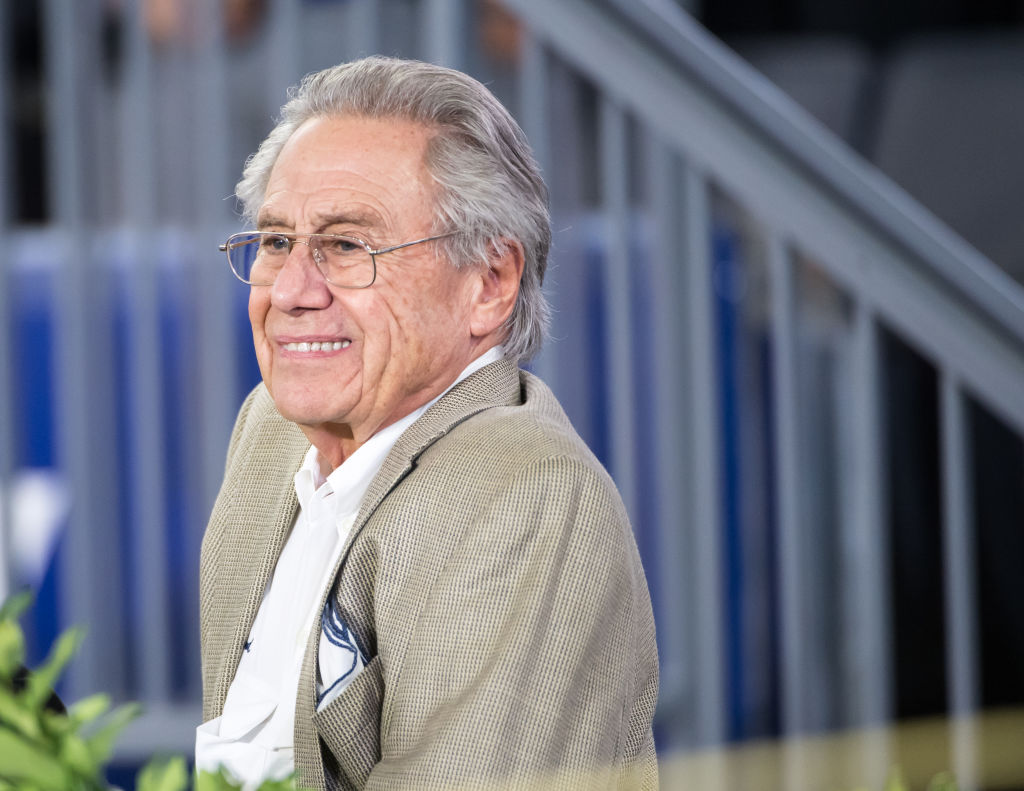NBA
Who Is the Richest Team Owner Who’s Won a Championship?

We’ve been told repeatedly that money can’t buy you happiness in life. The corollary to that observation could be that not only does lots of money not buy you lots of championships, but it also may not buy you any trophies at all.
The list of richest owners of professional sports franchises in the United States and Canada is topped by men whose fortunes earned in the business world have not translated to success on the playing field.
Obstacles to success for the richest owners
The men leading the annual list of richest sports owners published by Forbes in 2019 made the money in a variety of ways, including the tech sector, real estate, retail, and hedge funds.
While they had to follow laws and regulations from the likes of the Securities and Exchange Commission, they did not run into the immovable object that limits owners in all the major sports: salary caps.
Whereas they could spend money as quickly as desired to make more money in the business world, it’s more difficult to buy your way to the top in the NFL, NBA, Major League Baseball, or the NHL when the league is telling you to quit writing checks to players after a certain point.
That’s a critical reason why owners in the major sports are willing to take in extraordinarily rich men as partners in their respective sports without fear of being outbid for the top talent.
The case in point is Steve Ballmer, whose fortune was calculated at $41.2 million thanks primarily to his days at Microsoft. Ballmer bought the NBA’s Los Angeles Clippers for $2 billion in May 2014 as the league rid itself of then-owner Donald Sterling.
The Clippers made it to the NBA Western Conference semifinals in Ballmer’s first year but haven’t survived the opening round since.
More top owners haven’t made it to the top yet
Dietrich Mateschitz joined the Major League Soccer fraternity in March 2006 by purchasing the MetroStars and rebranding them as the New York Red Bulls, a nod to the energy drink upon which his $18.9 billion fortune was built.
The Red Bulls have made it to the MLS championship once, bowing to the Columbus Crew in 2008. They’ve advanced as far as the semifinals three times since.
Third on the billionaire owners list is Hasso Plattner, the co-founder of SAP Software. Plattner, whose net worth is estimated at $13.5 billion, became the majority owner of the San Jose Sharks in 2010. The Sharks have lost in the NHL Western Conference finals twice and in the Stanley Cup finals once, falling to the Pittsburgh Penguins in six games in 2016.
Carolina Panthers owner David Tepper, who made $11.6 billion operating hedge funds, gets a pass on the futility list, having only purchased the NFL team in 2018 for a reported $2.275 billion. The team has gone 7-9 and 5-11 in his two seasons.
Los Angeles reaches the top under Philip Anschutz
It’s only when you reach No. 5 on Forbes’ sports list that you get an owner who’s celebrated a championship. Philip Anschutz, who amassed $10.9 in investing, bought the Los Angeles Kings with Ed Roski Jr. in 1995 and was able to hoist the Stanley Cup in 2012 and 2014, though the team hasn’t made it out of the first round since.
Anschutz also purchased soccer’s Los Angeles Galaxy in October 1998 and racked up five MLS championships from 2002-14. The franchise has also won a pair of U.S. Open Cups and the 2000 CONCACAF Champions’ League.
Completing the list of the half dozen richest owners is Russian businessman Mikhail Prokhorov, who became the majority owner of the Brooklyn Nets in May 2010 when they were still located in New Jersey. Prokhorov, who is worth $9.8 billion, has seen only three winning seasons and one playoff run going as far as the Eastern Conference semifinals.











